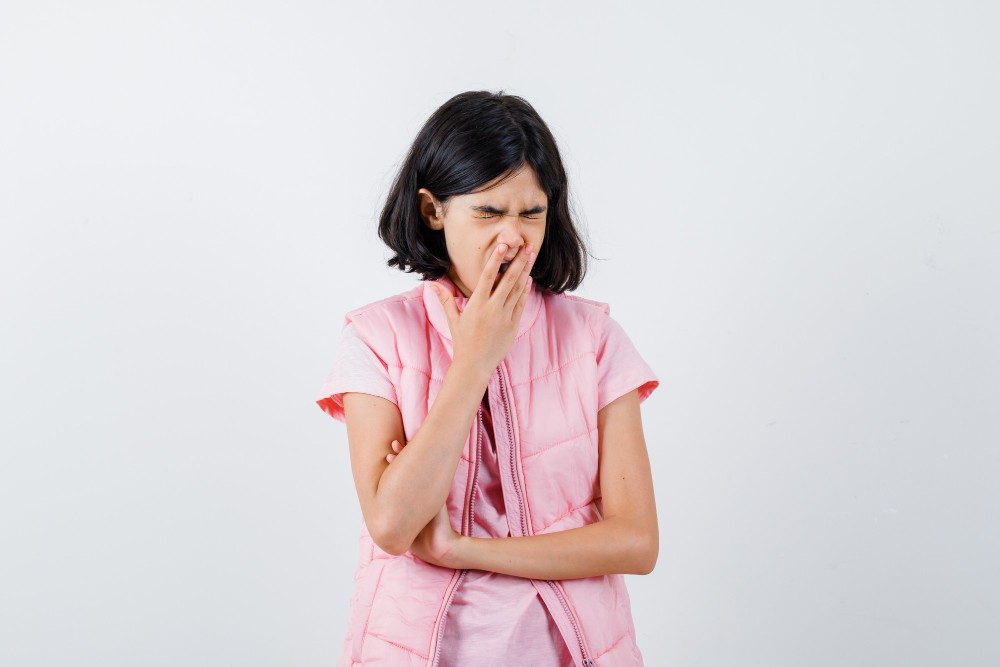Allergy is a common condition that can affect anyone, including children. As a parent, it’s important to understand the widespread myths about childhood allergies and the actual facts. Correctly addressing allergies is essential for supporting your child’s growth and well-being.
Myths and Facts about Allergies in Children
Allergies occur when the immune system overreacts to substances it mistakenly sees as harmful. These substances are called allergens. Normally, exposure to allergens doesn’t cause any issues. But in individuals with allergies, it can trigger symptoms like swelling, itching, rashes, and difficulty breathing.
Each child’s allergy triggers can be different. While some allergies that start in childhood may ease with age, others may continue into adulthood. Here are several myths and the facts that parents should know:
Food allergies last forever
Food allergies occur when the immune system misidentifies certain proteins in food as threats. Symptoms may include nausea, vomiting, facial swelling, or skin itching.
Food allergies typically appear early in life. Some of these, like milk, egg, or soy allergies, often disappear as children grow older. However, allergies to peanuts or seafood are more likely to persist into adulthood.
If parents aren’t allergic, children won’t be either
Allergies can run in families. Children of allergic parents are more likely to develop allergies too, though not necessarily to the same substances. For example, if both parents are allergic to seafood and peanuts, their child might have a different type of allergy.
On the flip side, even if neither parent has allergies, it doesn’t guarantee the child will be allergy-free. While genetics play a major role, allergies can still develop independently or skip generations.
Peanut allergies are the most dangerous for children
Peanut allergies are considered especially serious because they can lead to life-threatening reactions like anaphylaxis. This severe reaction can cause full-body itching, difficulty breathing, nausea, chest pain, swelling of the mouth, or fainting.
That said, peanut allergies aren’t the only ones to be cautious of. Any allergy, if not properly managed, can be dangerous. That’s why it’s important for parents to identify their child’s allergy triggers and understand how to treat them.
Children with asthma shouldn't have pets
Kids with asthma are often allergic to proteins in pet dander, saliva, or urine. Some children with mild reactions may still be able to have pets like cats or dogs. But if being around animals causes significant breathing issues or other severe symptoms, it’s best to avoid keeping pets at home.
When Should Allergies Be Examined by a Doctor?
Allergic reactions in children can range from mild to severe. Mild symptoms might include sneezing, runny nose, itchy skin, puffy eyes, or stomach discomfort. These usually improve once the allergen is removed and antihistamines are given.
However, if a child’s symptoms persist despite treatment, last more than three months, interfere with sleep, or include signs of anaphylaxis, such as low blood pressure, breathing difficulty, swollen lips, dizziness, or fainting, immediate medical attention is needed.
Emergency care for anaphylaxis may include allergy injections, oxygen, IV fluids, breathing support, or CPR in extreme cases
.
There are still many misconceptions about childhood allergies circulating among parents. If you have concerns or questions, consult a doctor or access the consultation feature in the Ai Care app, which is available for download on the App Store and Play Store.
Looking for more information about other diseases? Click here!
- dr Hanifa Rahma
Allergy & Asthma Network. Available from: https://allergyasthmanetwork.org/news/myths-about-food-allergies/
Kids Health. If I Have Asthma, Can I Keep My Pet?. Available from: https://kidshealth.org/en/teens/asthma-pet.html
Mayo Clinic. Allergies. Available from: https://www.mayoclinic.org/diseases-conditions/allergies/symptoms-causes/syc-20351497
John Hopkins Medicine. Food Allergies in Children and Babies. Available from: https://www.hopkinsmedicine.org/health/conditions-and-diseases/food-allergies-in-children
Cleveland Clinic. Food Allergies. Available from: https://my.clevelandclinic.org/health/diseases/9196-food-allergies












